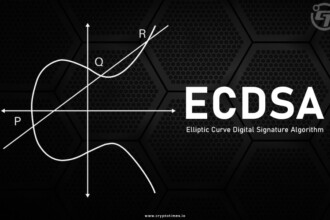The last fortnight saw the crypto community excitedly welcome the news of the Securities and Exchange Commission (SEC) of the U.S. approving spot exchange-traded funds (ETFs) for Bitcoin and Ethereum. The landmark step by the SEC saw a merger of DeFi with Traditional Finance (TradeFi) and it resulted in a boost of value for ETH and BTC, leaving the crypt enthusiasts and investors speculating whether a third cryptocurrency could be next in the line for approval.
In this “race to TradeFi”, several factors such as regulatory approval, market maturity, and investor demand play a crucial role in determining which cryptocurrency is most suited for ETF approvals.
So let’s explore some of the top contenders that could have their spot ETF next :
Ripple (XRP) ETF
Ripple (XRP) is one of the oldest blockchain-based payment networks and a major player in the market for a decade now. It is known for efficient cross-border payment solutions and numerous banking partnerships. The robust market capitalization and practical applications of XRP make it a strong candidate for a spot ETF. There was also a buzz around Ripple’s IPO which would get the company listed on the stock market.
However, Ripple’s ongoing lawsuit with the SEC over whether it is classified as a security poses significant hurdles. Until this legal battle favors Ripple and XRP is not classified as a security, the forthcoming potential IPO and the spot ETF remains elusive. If Ripple manages to overcome its legal challenges, the clarity and potential regulatory approval could significantly boost investor confidence. This will also make it a prime candidate for the next spot ETF in the near future.
Litecoin (LTC) ETF
Litecoin has been a staple in the crypto market since its inception in 2011. It is often referred to as silver to Bitcoin’s gold, as its stability and long-standing market presence has been present for more than a decade now. The longevity and consistent performance of Litecoin reflects its resilience and trust of investors.
In the past few years, Litecoin has also seen significant upgrades such as the implementation of the MimbleWimble protocol, which enhances privacy and scalability. Litecoin is also considered by Grayscale to be included in its crypto products, which suggest that the firm might be willing to issue spot or futures ETF for LTC as well. All these qualities and market placement of Litecoin makes it an appealing choice for the spot ETF.
Dogecoin (DOGE) ETF
Crypto industry often follows “all about fun” moto and the parody cryptocurrency Dogecoin has come a long way as a memecoin. While the recent memecoin boom has pushed several meme-based crypto assets to sky-high prices, Dogecoin remains a major crypto asset competing with fundamentally strong projects like Polygon and Avalanche. Dogecoin is also dubbed as the “Bitcoin for Memecoins.”
But could Dogecoin have a spot ETF? Well, if Bitcoin had the chance so does Dogecoin. The optimistic factors about Dogecoins are that it is fundamentally a decentralized asset, has no VC or private investor allocation and has a remarkable history.
Cardano (ADA) ETF
Cardano is one of the competitors of Ethereum in providing smart contract capabilities. It is recognized for its rigorous, fundamentally strong and a research-driven blockchain infrastructure that it yet to compel its full potential. With a strong emphasis on security, scalability, and sustainability – Cardano has carved out a niche in the decentralized finance (DeFi) and blockchain ecosystem.
The continuous development and expanding community highlights Cardano’s potential scale in the future of crypto space. The development of Cardano is slow paced yet steady. Its emphasis on regulatory compliance and thorough research could favor in making it a sophisticated asset. As regulatory bodies much focus on the complience when it comes to approve its spot ETF, Cardano’s approach could be a key advantage.
Solana (SOL) ETF
Solana has rapidly emerged as a leading blockchain network with high-speed and low cost transactions. Its continually increasing adoption within the crypto DeFi ecosystem suggests a brighter position for upcoming years. All these technical improvements and novel functionality of Solana showcases its potential for long-term viability.
These factors could support its case for a spot ETF. However, it also needs to ensure that regulators see asset’s allocation, and make improvements in fundraising approaches and other elements that Solana might lack. As Solana is quite a young asset in the crypto industry so it might have to wait for a few more years to be eligible for a publicly traded spot ETF.
Factors Influencing on Approval of Spot Crypto ETFs
As the crypto landscape continues to evolve, the above listed crypto assets may soon find themselves at the forefront of the next wave of crypto ETFs. Let’s find out what are the factors that could influence on the approval or denial of spot crypto ETFs;
Regulatory Developments
The regulatory updates – particularly from the government bodies like SEC – are the key factors when it comes to ETFs. The process of approval and regulatory frameworks will significantly impact the likelihood of new crypto ETFs.
Market Maturity
The maturity of the crypto asset market plays a significant role in deciding terms of the ETF. It includes factors like age of the asset, market capitalization, liquidity, stability and more.
Investor Demand
Strong investors’ demand for the crypto asset could potentially increase chances of ETF approval. It is also necessary for the asset to have traction in future ETF, so before the spot ETF is approved, a futures ETF is needed.
Conclusion
The introduction of spot Bitcoin ETFs has hinged the crypto market, bringing a wide exposure of crypto assets to traditional finance players. The hype around ETH ETF has also significantly impacted the crypto ecosystem. While both these assets have set a stage, investors are watching closely which crypto will be next to join their ranks in the ETF market. As the industry evolves, the above listed top contenders stand out as promising candidates. The potential approval will depend on their ability to meet regulatory standards and demonstrate their sustainability and market readiness.
Also Read: Bitcoin ETF Vs Ethereum ETF: Which Is a Better Investment Option?







